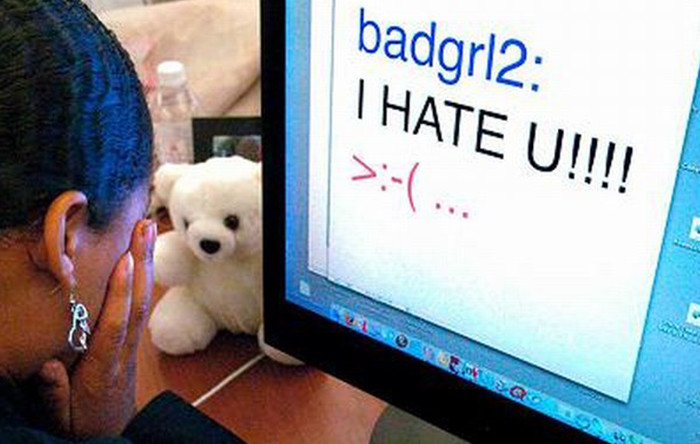As a parent, you keep tabs on your children when they go to the playground, sports practices, or to a friend’s house. But don’t forget to keep tabs on your child’s use of social media websites. Wondering where to start, or want to make sure you’ve got your bases covered? Read on for tips for keeping your kids safe on social media.
Whether you’ve got a growing child who’s interested in getting started on social media, or you’ve got teens who already take part, it’s important to make sure your kids are using social media appropriately and safely.
According to the Pew Research Center, teen social media users don’t express much concern about third-party access to their data, with only 9 percent saying they were very concerned. Most teens also report a high level of confidence in their ability to manage their privacy settings, the center also reports.
But as teens share more about themselves on social media than they did in the past, according to Pew, it’s important to not only put social media rules in place for your household, but to open up a frank dialogue with your family about keeping your kids safe on social media.
Start by educating yourself
If you don’t know what a tweet is, or what sites like Facebook or Instagram are, it’s time for a social media education. Once you’re familiar with the various social media platforms, you’ll better understand how to guide your child’s use of them, and keep your kids safe on social media.
Set up your own accounts and experience social media sites firsthand. Then you’ll grasp the site’s abilities, privacy settings, and will be able to guide your children’s use.
Some popular social media sites and their uses:
- Facebook: post pictures, videos, status updates
- Twitter: post updates of 140 characters or less
- Instagram: post photos that followers can comment on
- Google +: social network with private video chatting
- Google Drive: share documents and photos
- Myspace: offers email, a forum, communities, videos and weblog space
- Burnbook: anonymously most pictures and text
- Snapchat: send a photo or video which disappears in seconds
- Tumblr: post anything, follow others
- Vine: post short, looping videos
Now that you’re familiar with some social media sites, below are some tips on how to stay on top of your child’s social media use.
1) Make rules
As a parent, it’s your job to make rules your child should abide by in order to participate in social media. Come up with a set of rules that makes you comfortable, and try to anticipate any questions or work-arounds that your child may have before presenting the plan. Come up with a social media agreement (more info below) that everyone in the family should agree to and follow.
Consider rules for your child around these points:
- What age they can begin to use social media
- Which sites they are allowed to use
- How often they are allowed to use social media
- What their privacy settings must be
2) Educate on social media dangers
It’s also important to let kids know about the dangers of social media. Share with them what kind of behaviors are appropriate and not, what to look out for, and what information they should withhold from sharing, including personal info and private or inappropriate photos. Stress that cyberbullying is never acceptable, and they should report an instances of it to an adult.
3) Keeping an eye on it
Keep your home computer in a common, open area of your home. If you have laptops, tell your children when and for how long they can access them, and in what areas of the house. Keeping your child’s computer time visible and in an open location allows you to keep an eye on what they are doing, and discourages them from doing things on the computer they shouldn’t be doing.
4) Check privacy settings
Don’t trust that your child or teen has set up their privacy settings, and set them up correctly. Make a point to set them up with your child, and just as important, check up on them routinely. Sit down with your child at the computer and go through the settings, offering an explanation of why certain info shouldn’t be public.
5) Create a social media agreement
Make sure your whole family is on the same page with social media use by creating an agreement. Sit down with your kids and have them take part in the rule-making process. Also come up with consequences if the agreement is broken. Have each member of the family sign the agreement, and keep a paper copy tacked somewhere visible.
Rules to consider when drafting your social media agreement:
Setting Up
- I will ask my parents permission before joining any social media site
- I will allow my parents to set my privacy settings and parental control settings on all my accounts
- I will give my parents my passwords for all my social accounts
- I will NOT give my passwords to anyone other than my parents
- I will NOT set up any private or secret social media accounts
Safety
- I will NOT give out personal information (phone number, home address, or school name) or make plans to meet anyone I do not know in the real world.
- I will unfriend, block, and/or stop talking to anyone who makes me feel pressured or uncomfortable. I will tell my parents if someone is persistently bothering me.
Kindness
- I will be respectful to myself and others, even people I don’t like. I won’t be cruel online and I won’t tolerate, “like”, or otherwise encourage cruelty in others.
- I will respect other people’s privacy and feelings when posting photos or other content about them.
- I will tell my parents immediately if anyone I know seems to be in trouble or in need of help, even people I don’t know well or like.
- I understand that the photos and videos I post, and everything I write about myself and other people online can be saved and shared without my knowledge. So, I will NOT post anything online that I wouldn’t want my family, teachers, college admissions officers, or future employers to see.
- I will protect my passwords so people cannot pose and post as me. I will never pose as or post as anyone else.

Time Management
- I’ll be careful not to spend too much time online. I won’t let it interfere with sleep, schoolwork, hobbies, and my offline relationships with my friends and family.
- I will NOT use my phone or computer recreationally after 9pm at night. I understand that if I cannot respect this rule, my parents will hold my devices overnight.
Keeping your kids safe on social media is of growing importance. Assure your children that you love them and you only want what’s best for them. With a little bit of family communication and cooperation, you’ll be on your way to a safer Internet world for your children.
Is your child heading back to school soon? Read these tips on back to school safety.
In-Copy Photo By: J_O_I_D, August 29, 2015 via Flickr, Creative Commons Attribution.


